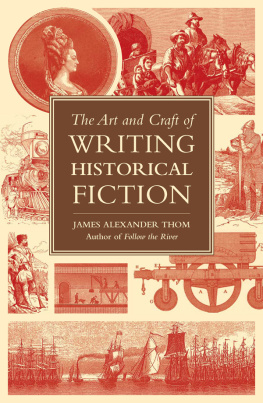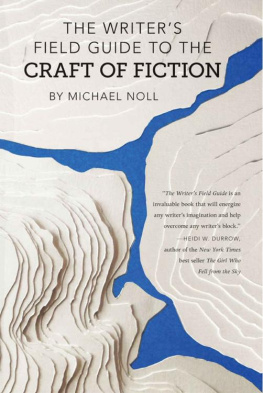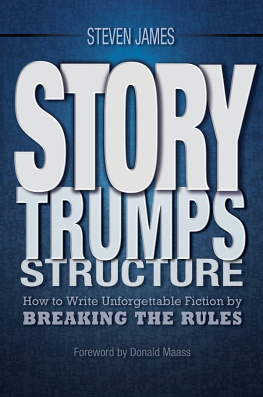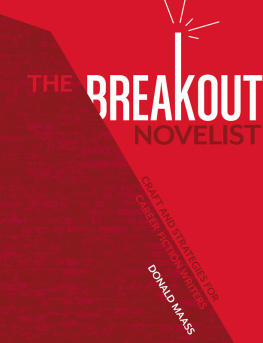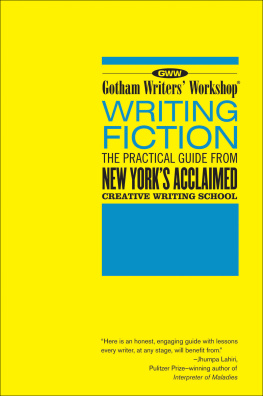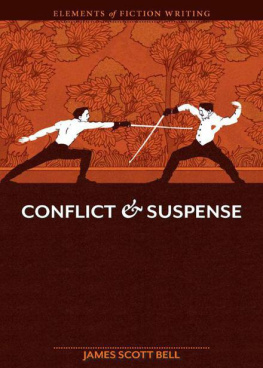Preface
ONCE UPON A TIME IT WAS NOW
They got married and lived happily ever after.
There! I've always wanted to start a book at that end. And I'll finish it: Once upon a time.
I certainly can do that: play with time switch a story end-to-end see the past and the future simultaneously predict yesterday and forget tomorrow.
Having spent most of my career as a historical novelist, I've developed godlike powers over the dimension of time. That is, godlike as in Janus, the Roman god with one face looking forward, the other backward. January, the doorway between last year and next, is named after Janus. To me, Janus is the personification of historical perception.
Janus-like, I might write: They will live happily ever after until the divorce.
For, you see, a career spent writing in historical time about real people and events has convinced me that there are more happy beginnings than happy endings. Happy endings aren't as essential to good storytelling as most people think. Stories with unhappy endings can teach and inspire just as well as those ending happily ever after. And usually they work better, because they're more true to life.
In this book, I will compare historical novelists with historians. The two are much alike; both tell stories of the past. But the historian's viewpoint faces backward only. He is limited to looking back in time; the historical novelist is not. Limited only by imagination, a historical novelist can go wild with time, just as wild as any science-fiction writer.
For example, one day, long ago, I picked up a science-fiction book that began, Once upon a time, there will be . And it went on from there to tell a story set in the future. That was a delightfully playful opening, and an understandable sentence like something the god Janus might say. At the time, I wished I'd thought of it.
In my long career in this historical fiction business, though, I've found that the most effective storytelling concept is this: Once upon a time it was now.
That has become my credo and my method as a longtime historical novelist.
It's quite simple, if you see as Janus sees:
Today is now.
Yesterday was now.
Tomorrow will be now.
Three hundred years ago, the eighteenth century was now.
You, as a historical novelist, can make any time now by taking your reader into that time. Once you grasp that, the rest is just hard work.
Stay with me, and you'll see how such work is done.
Chapter One
IN THE RIVER OF TIME
O nce upon a time, just a few months ago (a time we then thought of as now), the mother of a teenage girl lamented to me that her daughter simply was not interested in history. Not through school, History Channel programs, movies, old photo albums, or even the most earnest family conversations could the girl be roused to the least level of enthusiasm for anything concerning history.
In exasperation, the mother sat her down and asked her to explain her antipathy toward something as important and fascinating as history. The girl rolled her eyes, sighed, shrugged, and finally exclaimed: Because I'm not in it!
What a telling statement! Of course! Not only is history taught in dull ways, full of dates and meaningless names and places she's expected to remember and might be tested on, it's utterly irrelevant to her because she hadn't been born yet! She said a mouthful in that explanation.
Or, maybe she meant she wasn't recorded in MySpace or Face-book. Maybe her schoolmates hadn't texted each other calling her a geek or a slut. Maybe that's when history begins for young persons of today: when they are mentioned online.
But she was wrong to believe she's not in history. She didn't understand that she is a part of the historical story; she just hasn't yet caught up with the place in the story where she's been born. Her ancestors, or her American forebears who founded the country she now lives in, are the earlier chapters of that same story in which she'll appear soon enough. She is the result of that earlier history, the outcome of those people and what they did. They are part of her.
She and they are all part of the same story. The story of the world, of America, of any community or institution or family, flows like a river, and we are all in it some of us dead, some old, some young, some as yet unborn. Some of us are upstream; our ancestors are farther downstream; our young or yet unborn descendants still farther upstream. The River of History has countless tributaries and constantly comprises everything that flows into it.
The schoolgirl is in the River of History. She just doesn't feel immersed yet.
UP TO HERE IN HISTORY
Some of us are fortunate enough to feel ourselves immersed in the flow of history from a very young age. Personally, I have always felt that I'm in it, clear up to here.
I'm old enough that I can remember direct ancestors and old relatives who were veterans of the Civil War and the Spanish-American War. I remember their faces and their voices and their smells of tobacco, whiskey, farmyard, liniment, and the plain smell of old working men in the days before people used deodorant. I remember as a small child going to their funerals, their honor guards standing by, frail and white-bearded in their blue Union army uniforms. Such memories connect a child with the river of history, because a family shares the stream of another river: its blood.
A namesake of mine was killed in the Civil War at Petersburg. A great grandfather survived the hellish prison camp at Andersonville. His grandson, my father, served in the army in both world wars. Less than ten years after my father returned from the Pacific, I crossed it, going to Korea on a Marine troopship. Bloodlines are another kind of current in the River of Time, and they carry other streams of connection, such as soldiering, or family trades, or religious and political traditions, or fraternal orders and so on. In some families more than in others kinship bonds and behavioral traits are so strong that they're seldom out of mind. Not to mention family feuds. Many families in modern America are still divided by the Civil War.
In some families, storytelling, either proud or rueful of the fore-bears, plays a big role, while there's very little of that in other families. As a child, I knew of our family progression and of the history we'd been through, so I had always been aware of the flow of the river of history through time and of my place in the flow, upstream from some of us, downstream from others. Unlike that woman's teenage daughter, I never felt that I wasn't a part of history. And when I look at the old photographs of my ancestors, or visit the grave of a Revolutionary War veteran who was our first Thom to come over from Scotland, or read my mother's maiden name in Moby-Dick, I know they are all in me.
SHAPING THE PAST
The fortunes of some people, like stockbrokers on Wall Street, lie in something called futures. The fortunes of others royalty, for example lie in the past, by inheritance.
The fortunes (modest though they may be) of historians and historical novelists also lie in the past. The past is where we get the raw materials we use to make the stories by which we earn our bread. The raw material is already there, inexhaustible. We pick bygone time up by the handfuls and, like clay, see if it feels right and then form it into stories about the past.

